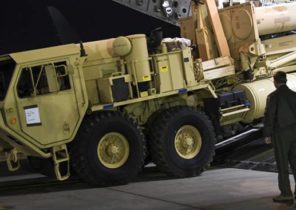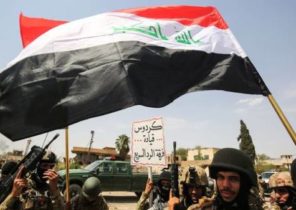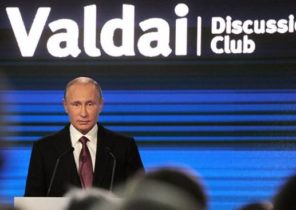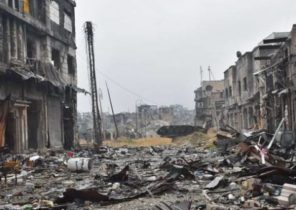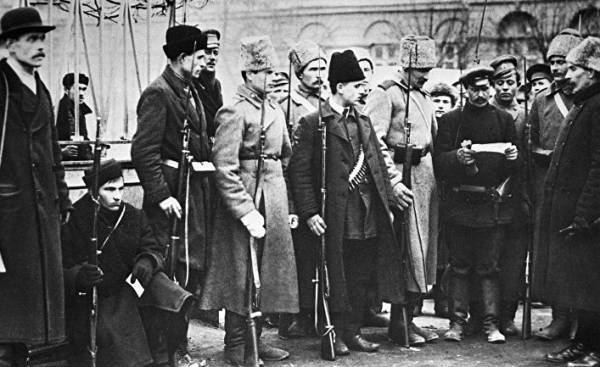
“Anarchy has never saved from famine and poverty. Before we explain to ourselves the essence of the crisis we have only to wait in horror of the possibility of the Portuguese crisis, which will take of what is happening behind the sample and lead us to the same shocks”
O Dia (Lisbon), 22 may 1917.
“The revolution in Russia. The abdication of the king. The establishment of a liberal system. This revolution is of decisive importance for the fate of the Austro-German dynasties. This is an example of this infection”, — wrote on March 16, 1917, in his diary, Chagas joão (João Chagas), the diplomatic representative of Portugal in Paris and an ardent defender of the country’s participation in the First world war. According to Sagasa that occurred in the month of the revolution (in Russia, lived according to the Julian calendar, it was February) was to confirm the justice of the Portuguese entry into the war. In accordance with the ideological interpretation of the conflict, which used Sagas and other radical Republicans, the war was necessary because it constituted a step forward on the path of mankind toward freedom, democracy and, oddly enough, universal peace. The king is the first among the monarchs lost his throne because he was the most oppressive of all, but others soon had the same fate. Moreover, the Russian revolution, turning the former subjects of the king, which in his hands differed little from puppets to full citizens, had to strengthen the military effort of this country and hasten the fall of the Central empires. This was the lesson of the French revolution of 1789 and mass mobilization, the decree on which four years later he published the young French Republic: free people was invincible. In General, from Petrograd came the great news. Five days Sagas in his diary described the Declaration of a Republic in Russia as “not a momentary thing, but the event of the whole era.” Meanwhile, in Lisbon the only Deputy from the socialists, Costa Jr. (Costa Júnior), in the House of representatives said unanimously endorsed by all the welcome word to the Russian people. In it, he extolled recognized the newly formed Provisional government rights (including the right to strike), the release of “those who, being victims of Russian autocracy, all the while languishing in the Imperial dungeons,” and, lastly, the assurances that war will be reborn Poland, “noble people, more than a century of staying in bondage to Germany, Austria and the Russian autocracy.” Now in interventionist circles could openly admit that for many years was hotly refuted: the struggle for democracy, justice and the rights of small Nations tsarist Russia was extremely uncomfortable ally.
On the other side of the political divide, the capital of the monarchist wing newspaper O Dia (“Day”) has reviewed the developments in Petrograd as a triumph of demagoguery and expressed doubts as to the advantages which the fall of the king could carry allies in their military achievements: “As all this will promote war with Russia, we frankly do not understand, and our mind tells us just the opposite”. The course of events shows that I was mistaken and Sagas,and Costa Jr., and journalists from O Dia. If war, on the one hand, provoked the collapse of all European empires (German, Austrian and Ottoman), on the other it also absorbed the young Russian Republic, found themselves unable to reform the country and to participate in the conflict. The Central powers won the war on the Eastern front, in October 1917 dealt a terrible defeat Italy (battle of Caporetto), and they almost managed to do the same on the Western front in 1918. However, in the spring of 1917 came from Russia news, it seemed, did not Bode nothing wrong, and the intentions of the new authorities seemed quite clear: continue the war, if not with the aim to expand the boundaries of the old Empire of the Romanovs (the last diplomatic victory of the king was recognized with Paris right after the war to define the Western border of the country), then, of course, to show that conflict can never be resolved solely by military means and that it is therefore imperative for a negotiated solution.
At this stage of the war there was much talk about the world. 1916 brought great frustration for each of the warring parties, which are involved in the war enormous human and material resources. In the fight against the French army of Germany made a bid for Verdun and lost. Britain, having finally at its disposal a large continental army lost at the battle of the Somme. And started Russian Brusilov offensive in the summer has seriously undermined the forces of the Austro-Hungarian army, although then Russia was stopped and destroyed by the Germans. Inspired by the initial success of this operation, Romania entered the war on the allied side, but were soon crushed by the enemies. Meanwhile, Italy continued in vain to send its soldiers in the direction of Trieste. On all fronts the situation has reached an impasse.
In December, German Chancellor Bethmann Hollweg proposed to hold a round of negotiations, without preconditions, to explore the possibilities of ending the conflict. Recently re-elected U.S. President Woodrow Wilson followed suit in January of 1917, proposing himself as a mediator, and put forward the idea of creating a new international organization, the Society for peace. It was the first outline of what later became the League of Nations. In July, the left and the centrist party of Germany, the Reichstag passed a resolution demanding peace without annexations and indemnities. Finally, in August, Pope Benedict XV presented his own reconciliation plan. The peace achieved with honour to all parties to the conflict was the aim of Alexander Kerensky, war Minister, and later Prime Minister of the Russian Republic. To achieve peace it was necessary that the Russian army has demonstrated its invincibility and thereby preserve a viable idea of no military solution for this conflict.
As long as were talking about ending the war, which originated after the revolution the Interim government could tackle he faced countless internal problems. At that time, the Councils — meetings of workers and soldiers with whom the Provisional government reluctantly shared power — it seemed, did not oppose such a strategy and as a first step, agreed to hold conference the Second international in Stockholm, which was supposed to move in together delegates from European socialist parties (warring and preserving the neutrality of countries). In Stockholm he intended to discuss a common framework for understanding that each party was to submit their own society, forcing the government to negotiate an end to the war. Similar meetings were held in Zimmerwald (1915) and Cintala (1916). The meeting in Stockholm promises to be bigger in scale and, given the military setbacks of the previous year and a series of calls for peace, instilled hope for success.
The strategy of Kerensky and of the Second international were thwarted by an unexpected and brilliant maneuver by the government of Germany: smuggled through Germany, Sweden and Finland in booking the train Lenin, the leader of the Bolshevik faction of the Russian social-democratic party and an ardent opponent of the war. From Switzerland he was able to return to Petrograd (the city that was soon renamed in his honor). In Zimmerwald and Kintala Lenin described the conflict as a prelude to the revolution foretold by Marx. It is therefore the duty of every socialist who is wearing this honorary name, not to cooperate with the belligerent governments, or attempt through negotiations to bring them to peace, but to guide the growing frustration of civilians and soldiers in the right direction and to deprive these governments of political power, and the bourgeoisie — economic.
The result of these meetings was the numerical defeat of Lenin, however, he became more and more convinced that his fellow reformers, obsessed with parliamentary games, has lost its meaning. The German government has calculated that with the return of the leader of the Bolsheviks in his native country, it thereby can hinder the work of the Provisional government. Berlin had no idea how successful will this manoeuvre. The arrival of Lenin in Russia has dramatically changed the political landscape of the country and completely undermine the young Republic. Lenin insisted on giving all power to the Soviets, mainly the revolutionary authorities, thereby dooming itself to irrelevance Interim government. Rapidly spread by the Bolshevik slogan “land, bread and peace” — tore patiently pursued Kerensky mainly in the army ranks work.
The Union government has banned delegates of the respective socialist parties to go to Stockholm, thus canceling the conference. Subjected to harassment Kerensky in July 1917 he decided to go on the offensive, putting everything on the line. A definite demonstration of the fact that Petrograd is still a strong and disciplined army, could persuade Berlin and Vienna to negotiate to end the war and help him to defeat Lenin. Kerensky was wrong: most of the units on the front lines under the influence of Bolshevik propaganda, refused to obey the order to attack. A few weeks later, taking advantage of the chaos that prevailed in the Russian trenches, the Germans went on the attack, which returned them hope for victory. The incredible successes of the German army on the Eastern front allowed the government and military officials to ignore the aforementioned truce proposed by the Reichstag: why ask for peace when the war is almost won? After the riots, organized in Petrograd loyal to the Bolshevik units, and the coup attempt made commander-in-chief of Russian army General Kornilov, the Russian Republic was torn to shreds. Her supporters remained only hope that the elections to the Constituent Assembly on November 25 will give the regime a new incentive. Just not to prevent the elections, the Bolsheviks of the sixth and the seventh day he seized power, first in the streets of the capital, and then at the national Congress of Soviets. It is interesting to note that the elections were held, and participated in 44 million voters. At that time it was the largest democratic vote in the world and the largest of its futility because the Bolsheviks, defeated at the election, decided to ignore the results: the legitimacy was given to them not by voters, and history, at the forefront of which they, in his own assurances, Chagall.
As in Russia, 1917 was a turbulent year for Portugal. Beginning in January, sending the Portuguese expeditionary corps (CEP) to the battlefields in France did not prevent the aggravation of the political struggle between various Republican factions. The leaders of the “Holy Alliance” (“União Sagrada” — the 13th government of the First Portuguese Republic, which had been based on an Alliance of all political parties in the country — approx.TRANS.) also was not able to cope with the growing economic and social difficulties, which led to shortage of food and fuel for unrest and many strikes throughout the country. So the struggle for power and war, which involved Portugal, pushed international news, including events in Russia on the back burner. About the state of mind of a large part of the population can be judged by a rapidly growing number of those who every month went to Fatima, hoping to witness the alleged apparitions of the virgin Mary. In this context, the party politically used both the Russian revolution for their own purposes, not always fully understanding the meaning and complexity of what is happening in Russia. The success of the March and November coincided in Portugal with periods of many speculative arguments that accompanied the fall of the first government of the “sacred Union”, led by antónio josé de Almeida (António José de Almeida, the leader of the Evolutionary party) and the inevitable fall of the second, headed by Afonso Costa (Afonso Costa, leader of the Democratic party). If the monarchists saw the victory of Lenin and Trotsky, the proof of all their prejudices against the Republican regimes — which was understood by them simply as the shortest way to chaos — the Republicans did not hide disappointment, reproducing in the pages of their publications which ran around the world rumors on the nature of the Bolshevik government, and from time to time trying to draw conclusions from this situation.
29 Nov newspaper A Capital (“Capital”) — pay attention to how the political situation in Portugal and the life of the expeditionary force in France, reported that in Petrograd works, “a government headed by two citizens — Lenin and Trotsky — who pays for it Germany”, that “maximalists hold all who dare to go out dressed”. Republican newspaper concluded: “In General, Russia came to one of those traditional “Slavic anarchy”, which inevitably end with the triumph of dictator, some of Ivan the terrible, in spirit close to their Asian ancestors…” Happened a few days after the publication of this article, a coup led by Sidonia Pisem (Sidónio Pais) changed the Portuguese political landscape, further reducing the interest in the events at the other end of Europe. Construction salonisti “New Republic” began with the denigration of “old” and was accompanied by flared up with new force disputes and party passions. While Newspapers reveled in the devastation that befell the home office and the Treasury Afonso Costa, the rest of the world had to wait. It is time for revenge.
The development of the situation in Russia inspired the anti-war the Portuguese minority, with the extreme left position was to condemn the war as an imperialist struggle in which the European working class is ruthlessly sacrificed. Portuguese socialist party (PSP) has been compromised by the participation of Portugal in the conflict, which she interpreted as defending European democratic traditions from militaristic attacks of Germany and the protection of the rights of small Nations. Really PSP, which almost immediately after its occurrence has overtaken the Republican movement has played a minor role in the political life of the country. The same, however, cannot be said about the National Union of workers (the GT), the Federation of Portuguese trade unions, founded in 1914 and inspired by the example of anarchists-syndicalists. Much more powerful than the PSP, the und despite censorship organized propaganda against the participation of Portugal in the war, referring to the economic difficulties experienced by the people. Afonso Costa not taking the trade unions, before the war became their inveterate enemy, but the conflict has made its position vulnerable. For the GT taking place in Russia, where the Soviets fought for power with the Provisional government, was a source of inspiration and enthusiasm (despite the fact that the Russian anarchists play in this process most a minor role). In this sense, taken by the Soviet power parallel diplomacy, especially the planned socialist conference in Stockholm, was received with great enthusiasm: the sooner peace comes, the better. While the PSP has condemned the initiative, calling it the German maneuver, the aim of which is to sow discord first in the international labor movement (read: left of the Second international), and then in the allied countries, publication of the und described Stockholm as the last chance to bring peace to Europe. It is in the anarchist press, principally in the journal A Sementeira, we find the most systematic coverage of the Russian events.
Starting with the November revolution and the victory of the Bolsheviks this current became even stronger, especially after the coup, Sidonia Paisa. A period (short-lived) truce between government factions — less constant in its interventionism than the ousted Democrats, Afonso Costa and the GT. In January syndicalist newspaper A Greve (Strike), taking advantage of the sudden end of censorship in the press, began openly to declare their opposition to the war: “We’re not trying to pretend to be nor germanophiles no francophils, nor those who advocated neutrality. We, the workers, are against the war because it is beneficial only to the government elite and the capitalists.” The victory of Lenin sparked a revolutionary appetite of Portugal.
For the victory of the Bolsheviks in November 1917 was followed by Brest-Litovsk, ending Russia’s participation in world war II. To make peace, Lenin and Trotsky went on a huge territorial concessions to the Central empires. For them it was certainly not easy, but they believed that their example will infect German and Austro-Hungarian army into a revolutionary force ready to turn the bayonets against their own rulers. They were wrong; the Treaty was followed by the transfer of most of the German troops on the Western front, where in the spring the fate of the conflict. Would Germany who were on the verge of exhaustion, to defeat the allies before the arrival of a powerful reinforcement? After the first attack of the Somme in March, was taken by another in Flanders. Thus, first by the Portuguese, who were directly affected by the November revolution was the soldiers and officers of the expeditionary corps, namely, of the second division, defeated in the battle of the river Lys. Survivors then were given secondary tasks such as the preparation of trenches and other defensive positions is less risky, but definitely do not add the prestige of the country.
Not able to solve standing in front of Portugal’s economic problems, the New Republic, Sidonie Paisa was characterized by great political instability. The government constantly succeeded each other, and Sidonio Pais increasingly relied on individuals about whom society knew almost nothing. Removed from power and therefore consistently dangerous Democrats began preparations for the coup. Sidonia, was called a traitor in the service of Berlin; his shift was, according to them, it is necessary to save national honor. They attempted happiness in October 1918, but failed, with the result that jails were filled with civil and military officials-participants of the coup, some of them were officers returning from France. Next month with the filing of the GT began the revolutionary General strike. The truce between Sidonia paysam and the trade Union Federation was very short-lived, and the year 1918 was marked by several major strikes. In its March resolution of the Central Council of the Federation of trade unions claimed that the working class has nothing to expect from the government. Later Federation of trade unions refused to cooperate in the elections to the Senate, externally, on corporate character and one of the innovations of the New Republic. In turn, salonisti are unable to resist the temptation and began to expose allegedly existing in Portugal “tips” in order to strengthen public opinion of their own fragile positions, and thus to justify a policy of violence. Anarchist Quartin Pinto (Pinto Quartin) in an interview with O Século (“Age”) ridiculed the “crazy idea that the “Russian threat” horrifies those who fear becoming a victim of a previously hidden and finally break free of the wrath of the masses.”
In September 1918, the government banned a number of meetings, the participants had intended to present a broad range of social, economic and political demands, and the leaders of the GT was the last weapon is scheduled for October and postponed due to the coup of the democratic party of the revolutionary General strike. The strikers took to the streets when the war was ended, November 18. Their goal was to overthrow the government, but it could fight back. After two days of clashes, the situation was resolved in favor of Sidonia Paisa. The Republican press welcomed the commitment of the government and underlined the weak willed strikers, a performance which was described as a “criminal adventure.” According to the O Século, “it was a lot of honest workers who hated the idea of solidarity with the leaders of this movement.” A Capital welcomed the lisboners who do not let themselves be intimidated by rumors of “a total rebuilding mode and […] equitable distribution of wealth, with all these Tips and stuff. Russia in miniature!” And if the first newspaper accused the und in deviation from the “straight path he had to follow,” the second tried to embed the recent gains in the European context. Under Kerensky Russia fought on the side of freedom with the allies. Under Lenin it was “on the side of despotism”, playing a German tune. Now the country has lived “during the terror, which is the most repressive of tyrannies”. The allies (including Portugal) did not accept Bolshevism, but that doesn’t meant that they wouldn’t have started since the war a new era of social progress, provided that it is governed by respect for the law. The Portuguese working class, in turn, rejected the “subversive maneuvers in the Bolshevik spirit.”
After the war, and the assassination of Sidonio Paisa in December 1918, the Portuguese labor movement continued to develop. Republic in transition from war to peace and from sionizma to the “New Old Republic”, but without the assistance of Afonso Costa was forced to fight the monarchy in the North and has shown to be ineffective in quick solutions to the economic challenges inherited after the war. Meanwhile, in Russia, which in terms of a comprehensive civil war was under threat of foreign military intervention, Lenin in March 1919 he created the Third international, through which it hoped to export its revolutionary model. After a year at the second international Congress was held on the 21st condition for the entry of political movements into international and turning them into the Communist party. It was decided to create the Red international of trade unions (Profintern) to coordinate the activities of trade unions affiliated to the Communist movement. Internal crisis and the situation in Russia came to the fore when in Lisbon the first of may, 1919, 30 thousand workers gathered in Lisbon for the convening of the Federation of workers trade unions of the capital. In submitted to the government a resolution, they demanded the introduction of the eight-hour day, “a gradual and growing socialisation of land and industry” and return to the capital “all the comrades exiled to Africa for reasons of a social nature” (many of them were in the colonies after the November strike, 1918). The resolution also referred to the sympathy of the demonstrators, “in the highest degree socialist principles to be followed by revolution in the East”, and there was a promise to defend it “all the forces in the face of armed intervention and blockade, which the capitalist state are going to push social revolution”. This was the motto for the coming years.
In September 1919, the GT was replaced by the General Confederation of workers (CGT), which greatly surpasses it in the organization and had its own organ, a mass-circulation newspaper A Batalha (“Battle”). From CGT had established contact with Profinterna, but with Moscow it was shared insurmountable ideological differences. The Portuguese Confederation of workers was closer to the International Association of workers, better known as the Anarchist international. Meanwhile, some Union members believed that the Russian experience was learned well enough, and it is in the depths of that frustration was born of the Portuguese Communist party (PCP). In September, 1919, along with the CGT originated the Portuguese maximalist Federation, which consisted of revolutionary syndicalists, ready to follow the revolutionary ideals of Lenin and joined the rebellious path of struggle for power. Their newspaper, A Bandeira Vermelha (Red flag) paid special attention to Russian politics, published the works of its leading figures and fiercely attacked the Republican government of Portugal. The most famous leader of the party, Manuel Ribeiro (Manuel Ribeiro), was arrested during a strike of railroad workers in 1920. The organization did not survive the impact however, the foundations were laid in order to a few months later, the Federation could be transformed into the Portuguese Communist party.
Thinking about the origins of the PCP, césar Oliveira (Oliveira César) wrote that the party is “a unique case in the history of the international workers ‘movement”. It arose not from a “powerful mass movement” or schism in the already existing Socialist parties, but of “the Russian revolution and the consciousness of the disadvantages of CGT that were visible to a limited number of trade unionists and members of youth unions.”
Despite the direct cooperation with the Third international, the development of the party and the formation of a common ideology was very slow. And it is easy to understand why. Given the high level of illiteracy in Portugal, amounting to about 70%, limiting suffrage to educated people, the historical weakness of the Portuguese socialist party and strained relations between the labour movement and of the Republican regime, most of the workers — which in Portugal was quite a small class did not show the slightest interest in party politics, from which nothing was waiting. Political mobilization of agricultural workers in Alentejo have ended before it began. It did not have enough money. And people crossing from anarchism to communism, it was not easy to adapt to ideological rigor and international institutions (and discipline) of this movement. In 1922, the PCP joined the Comintern, sending for the fourth Congress of its delegation. In the political life of the country PCP played a somewhat secondary role when on may 28 (just before its second Congress in Lisbon) was a military coup, which caused the first major wave of repression against the party. It seemed that for every step forward had two steps back.
Filipe Ribeiro de Menezes, historian and Professor at the national University of Ireland (Maynooth) and author (“Franco and the civil war in Spain”, “Salazar: a political biography”, etc.)
